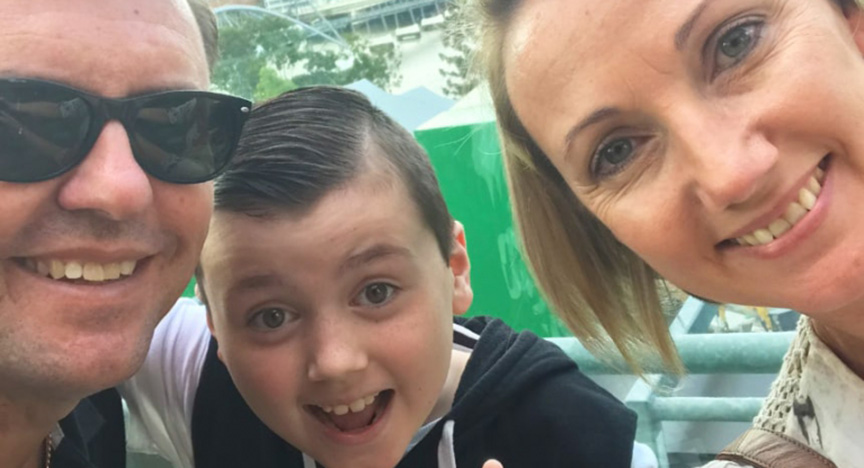
Our son, William, was diagnosed with level 3 autism when he was only four-and-a-half years-old. His mind and body had already been compromised from a cancer diagnosis and treatment, but it wasn’t until we engaged with an early childhood development program for his global development delays that we, along with his teachers and hospital staff, noticed his autism-like traits. Although we had already endured a cancer diagnosis, this was equally as confronting and challenging for all of us.
William is a kind-hearted, joyful child with a great sense of humour. He loves to sing, dance, dress up as the yellow Wiggle and hang out with his big brothers and sister-in-law. Multiple supports have helped William, and us, get to where we are today and we know they will continue well into the future. We are grateful for the support of many services that help William live in his world, which is very different to ours.
Over the years, we’ve learned that things may not always go as planned, but it doesn’t mean you can’t or won’t enjoy some of the most precious, life fulfilling and joyous moments in the journey.
We’ve also learned a lot about autism. This wasn’t always the case and we realise that for many others, knowing how to relate to, accept and care for a child with autism can be quite daunting.
Because of this, we’d like to share six these things you may not know about autism:
- Autism doesn’t have a look. We make accommodations for people with a visible disability as we should, however autism is a hidden disability and can make it hard on the person and the family in situations. Understanding, patience and a smile can go a long way.
- A ‘meltdown’ is not a ‘tantrum’. Often it is a sign the child is in pain. Don’t judge, have empathy.
- Every gain is a gain no matter how small. Living with a child who has autism makes you realise the importance of celebrating what would normally be the “taken for granted” things in life.
- Children with autism grow into adults with autism, so it is important to be open to learning about the condition so you can better understand and relate to them.
- Inclusion is vital to not only the person with autism, but also to the family. Even if they need to say no eight times out of ten, let them decide what they can manage rather than taking away that option. Otherwise life can be too isolating.
- As the saying goes, ‘if you have met one person with autism, you have met one person with autism’. The spectrum is just that, and every person regardless of who they are, has their own personality and character.
One of the greatest joys is seeing the good side of people engaging with our son and seeing his face light up in pure happiness. He has given us an even bigger appreciation and understanding of unconditional love, trust and faith in our family and friends who have remained on this journey with us.